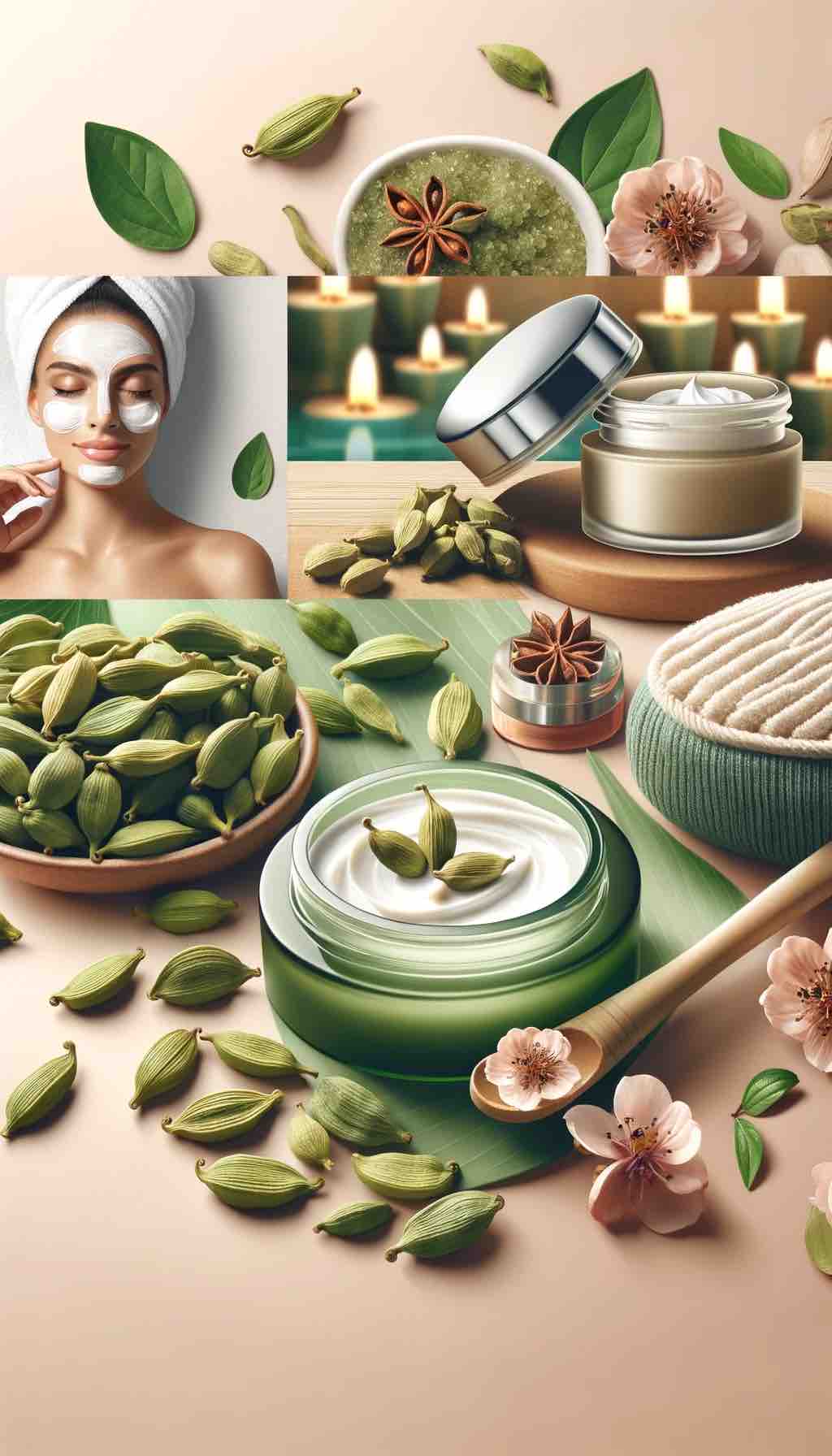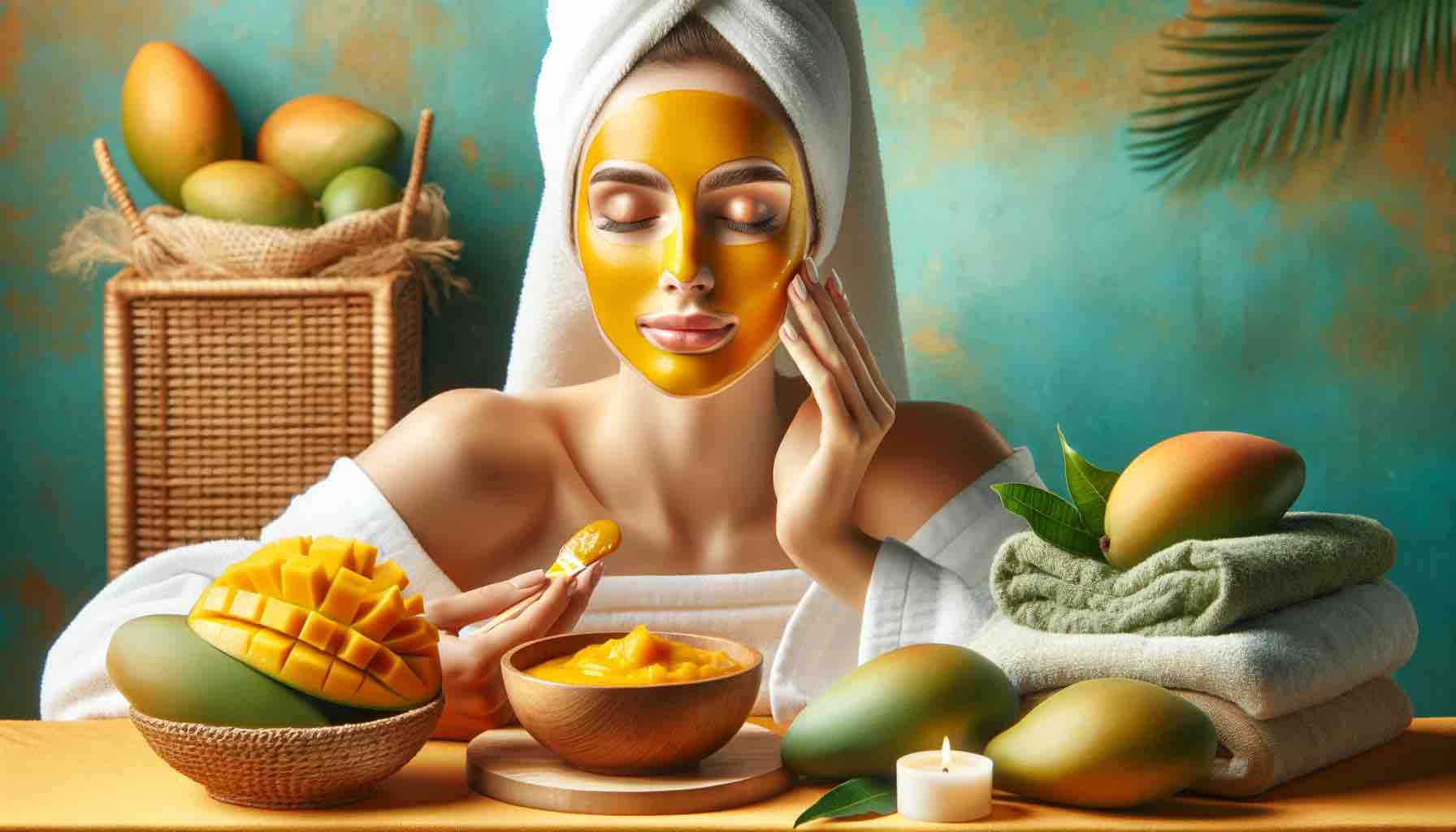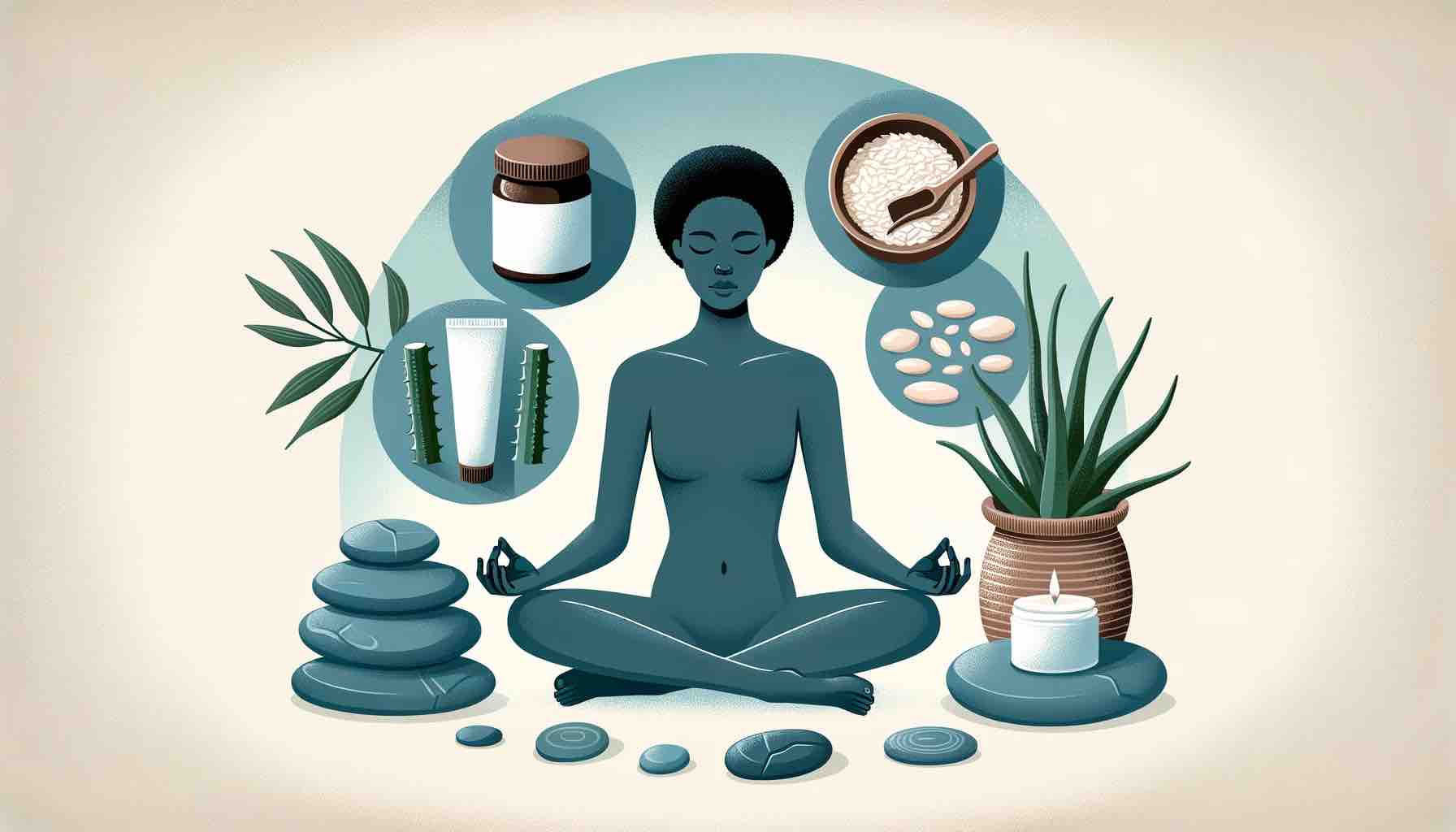
Unleashing the Wonders of Cardamom: A Luxurious Journey for Your Skin
Welcome to a world where your kitchen spice rack holds the key to unlocking the secrets of radiant, youthful skin. Cardamom, an ancient spice, revered in culinary circles, is also a hidden gem in skincare. Its remarkable benefits range from battling signs of aging to soothing and rejuvenating tired skin. Let’s embark on this aromatic journey and explore how cardamom can transform your skincare regimen.
The Spectacular Skin Benefits of Cardamom
1. Antioxidant Haven: Cardamom is a treasure chest of antioxidants, providing your skin with a defense against premature aging. Envision a natural barrier shielding your skin from environmental stressors, leaving it youthful and vibrant.
2. Combat Skin Ailments with Antimicrobial Properties: Troubled by acne or skin infections? Cardamom’s natural antimicrobial abilities come to the rescue, ensuring your complexion remains clear and flawless.
3. Anti-inflammatory Wonder: Soothe and calm your irritated skin with cardamom’s anti-inflammatory magic. It reduces redness and brings relief to inflamed skin, restoring its natural tranquility.
4. Detoxifying Elixir: Revive your skin from the stresses of daily life. Cardamom’s detoxifying properties cleanse your skin, leaving it fresh and rejuvenated, as if it’s been pampered by a professional.
5. The Ultimate Hydrator: Combat dryness and achieve a supple, hydrated look. Cardamom, brimming with essential nutrients, ensures your skin is moisturized and glowing with health.
Incorporating Cardamom into Your Skincare Routine
- DIY Cardamom Face Masks: Whip up a quick face mask by mixing ground cardamom with honey for an antioxidant-rich, moisturizing treat.
- Cardamom Steam Facial: Add a few cardamom pods to your facial steam. It’s a perfect way to open up pores and imbue your skin with its benefits.
- Cardamom Infused Oils: Use cardamom-infused oils as part of your nightly skincare routine for a soothing and rejuvenating effect.
DIY Cardamom Masks: Your At-Home Spa Experience
- Cardamom & Honey Hydration Mask:
- Mix 1 teaspoon of ground cardamom with 2 tablespoons of honey.
- Apply to your face, leave for 15 minutes, then rinse with warm water.
- Ideal for: Hydrating and imparting a natural glow.
- Cardamom, Oatmeal & Yogurt Soothing Mask:
- Combine ½ teaspoon of ground cardamom, 2 tablespoons of oatmeal, and 2 tablespoons of yogurt.
- Apply the mixture, leave for 20 minutes, and rinse.
- Ideal for: Soothing sensitive skin and gentle exfoliation.
- Cardamom & Green Tea Antioxidant Mask:
- Steep a green tea bag in hot water, then mix in ½ teaspoon of cardamom powder.
- Apply the cool mixture to your face for 20 minutes before rinsing.
- Ideal for: Fighting oxidative stress and rejuvenating tired skin.
- Cardamom, Turmeric & Lemon Brightening Mask:
- Mix ½ teaspoon each of cardamom powder, turmeric, and a few drops of lemon juice.
- Apply, leave for 15 minutes, and then rinse with cool water.
- Ideal for: Brightening the complexion and reducing dark spots.
Cardamom: A Versatile Spice for Overall Wellness
Beyond its skin benefits, cardamom is a holistic health enhancer. From aiding digestion and respiratory health to its potential in managing blood pressure, cardamom is a spice that nurtures your overall wellbeing. Its aromatic properties also offer a calming effect, reducing stress and elevating your mood.
Embracing the Mystique of Cardamom in Skincare
Integrating cardamom into your skincare routine is not just about enhancing beauty; it’s a celebration of ancient wisdom and natural wellness. This spice’s multifaceted properties make it an invaluable addition to your beauty arsenal, promising a journey to radiant, healthy skin and beyond. Let the allure of cardamom transform your skincare into an indulgent, effective ritual.
10 FAQs for Cardamom Skin Care
1. Q: Can cardamom really improve skin health? A: Absolutely! Cardamom is rich in antioxidants and antimicrobial properties, making it great for fighting skin aging, acne, and promoting overall skin health.
2. Q: Is cardamom good for all skin types? A: Yes, cardamom is generally good for all skin types. However, if you have sensitive skin, it’s always best to do a patch test first.
3. Q: How often can I use cardamom masks? A: You can use cardamom masks 1-2 times a week. It’s important not to overdo it to maintain the natural balance of your skin.
4. Q: Can I use cardamom if I have acne-prone skin? A: Yes, cardamom can be beneficial for acne-prone skin due to its antimicrobial properties. It can help in reducing acne and improving skin clarity.
5. Q: Are there any side effects of using cardamom on the skin? A: Cardamom is generally safe for topical use, but some people may experience irritation. Always conduct a patch test before full application.
6. Q: Can cardamom help with skin aging? A: Yes, the antioxidants in cardamom can help in combating signs of aging such as wrinkles and fine lines.
7. Q: How can I incorporate cardamom into my skincare routine? A: You can incorporate cardamom by using DIY cardamom masks, cardamom-infused oils, or adding it to your regular skincare products.
8. Q: Can cardamom lighten the skin? A: Cardamom can help in brightening the skin and reducing dark spots, but it does not bleach the skin.
9. Q: Is cardamom effective in treating skin inflammation? A: Yes, cardamom has anti-inflammatory properties that can help in reducing skin inflammation and redness.
10. Q: Where can I find cardamom for skincare? A: You can find cardamom in grocery stores, spice markets, or online. Make sure to use pure, high-quality cardamom for the best results.
Blog Tags for the Post
Cardamom Skincare, Natural Beauty, DIY Masks, Antioxidant Skincare, Anti-Aging, Acne Solutions, Skin Hydration, Detoxifying Skincare, Glowing Skin, Holistic Health













